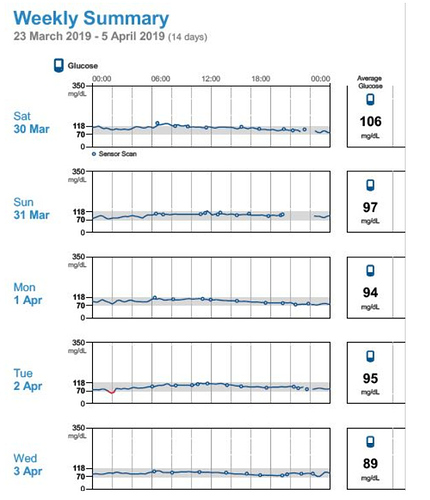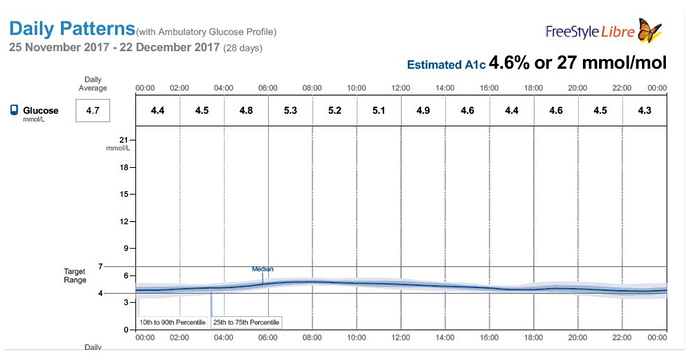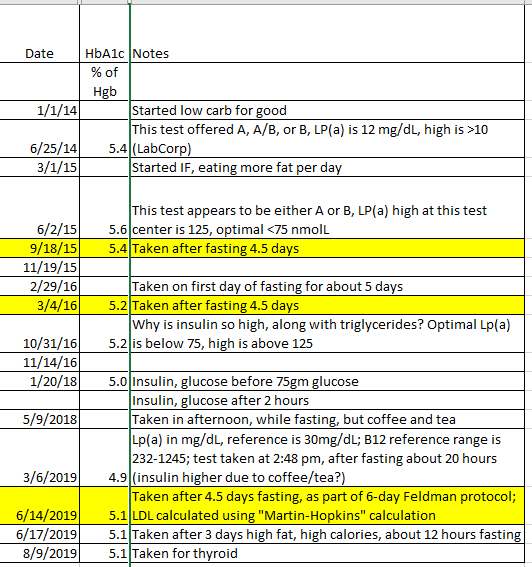I’ve been eating less than 20g of net carbs for several months now.
When I started, my FBG was below 100 mg/dL. After a while, it was higher than 100. I’ve persisted and it finally was consistently below 100. By reading posts here and elsewhere on the web I’ve understood my body was somehow cleansing itself. I do mostly OMAD.
Now I’m on vacation and it’s been a little bit more difficult to stay below 20g. But I do try to be as strict as possible. I’m hiking, kayaking and cycling everyday. Sometimes I have more carbs than I’d normally have. For instance, yesterday I’ve had green beans (a lot, say 200g) and ratatouille (say, 200g). With poached fish.
I indulge in 86% chocolate, for a maximum of 40g a day, but most days, none, or only 10g.
What I’ve noticed is that my BG could get a little above 140 mg/dL 1h after such a meal. But it then goes slowly down. 6h after the meal, it was still a 106. The morning after, it is FBG 91.
But on other days like this, I’ve had FBG 101 the morning after.
I’m not eating ice creams and cakes. When I eat a bad meal, it’s veggies, like having green beans, or carrots, or tomatoes. My BG after such a bad meal doesn’t go above 150.
My question is about the BG going down so slowly after such a meal. My body doesn’t make insulin? Or it doesn’t react to it as a normal person?
As per ketostix, I’m in ketosis. I’ve been out of ketosis only one day (almost no color change), then the day after I had the second darkest color on the stick. The day before I’ve done an epic climb with my bike against 100 km/h wind gusts.
Thank you for any information about the BG going down so slowly after a bad meal.
Edit: I’ve never been diagnosed as diabetic, nor pre, but I had a FBG test give me a 102 once and that has motivated me to change my WOE. I haven’t seen my doctor since, because right after that test I travelled and when I was back, the coronavirus started. I’m 1,64m and about 61 kg and have never been obese.



